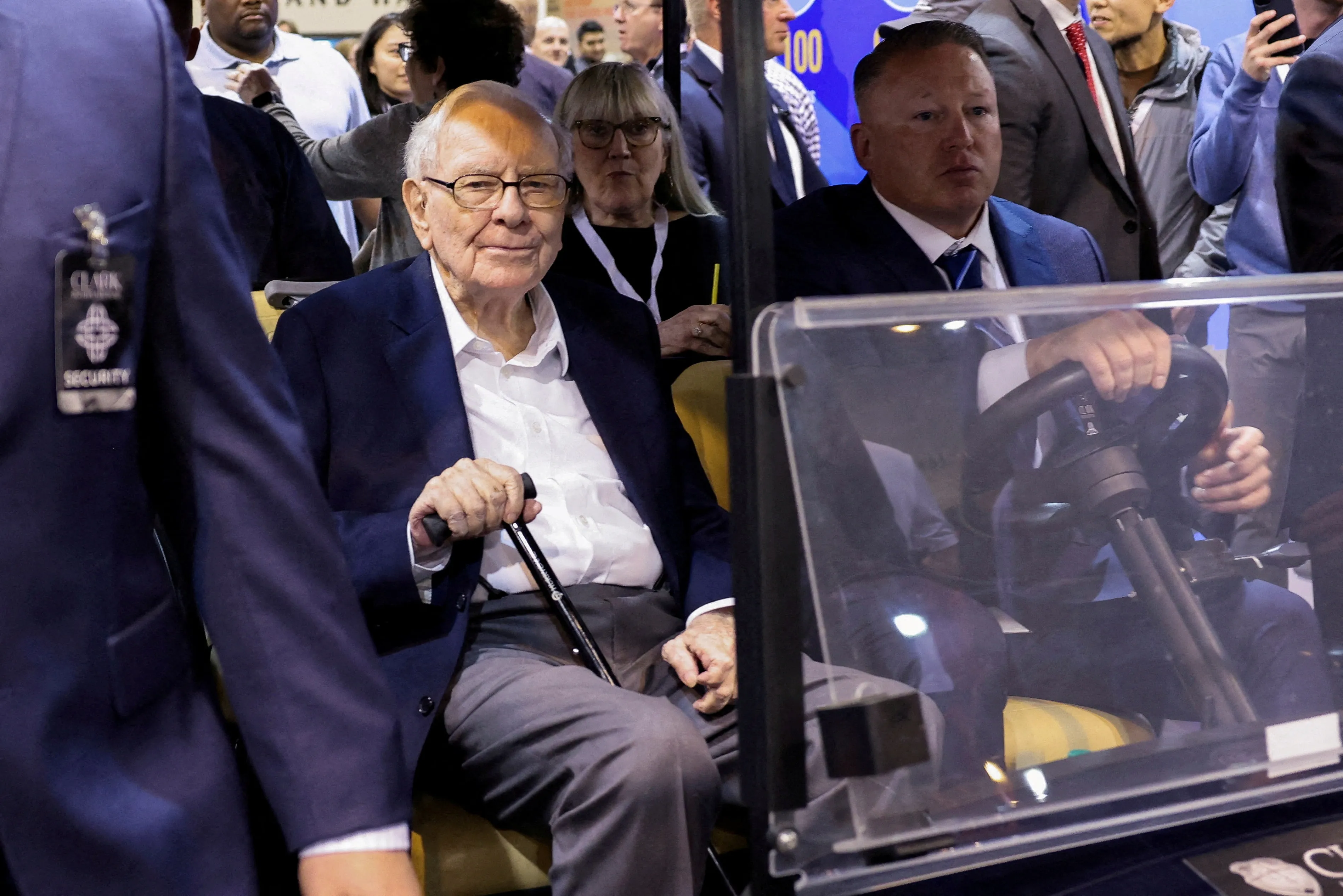Despite Buffett's Exit News, Berkshire Hathaway Continues to Underperform, Now Trailing the S&P 500
Berkshire Hathaway’s stock has continued to lag behind the broader market following Warren Buffett’s announcement of his succession plans. So far in 2025, the investment giant’s performance has failed to keep pace with the S&P 500 Index, raising investor concerns about its trajectory in a post-Buffett era.
Since Buffett revealed on May 3 that he plans to pass leadership of Berkshire Hathaway to his successors, the company’s Class B shares have declined more than 12%. This decline has significantly reduced the stock’s year-to-date gains to just 4.5%, compared with the S&P 500’s 7% rise over the same period. The announcement appears to have shaken investor confidence, prompting a noticeable retreat from the stock.
Berkshire’s B shares have suffered losses in six of the last seven weeks and are currently heading for their third consecutive monthly decline. If July ends in negative territory, it would mark the longest monthly losing streak for the company since June 2022. In a further signal of technical weakness, the B shares recently fell below their 200-day moving average, ending a remarkable streak of 573 trading days above that threshold — the longest such run since the B shares were introduced in 1996.
Despite the company’s current struggles, Buffett has long cautioned investors not to expect outsized returns from Berkshire going forward. With over $100 billion in cash reserves and a massive portfolio spanning dozens of industries, Buffett has acknowledged that finding new investments large enough to meaningfully impact the company’s results is increasingly difficult. The conglomerate’s sheer size has become both a strength and a limitation.
In his 2023 annual shareholder letter, Buffett stated that while Berkshire’s mix of high-quality businesses is likely to outperform the average American corporation slightly, expecting significantly better returns would be unrealistic. “With our present mix of businesses, Berkshire should do a bit better than the average American corporation and, more important, should also operate with materially less risk of permanent loss of capital,” Buffett wrote. “Anything beyond ‘slightly better,’ though, is wishful thinking.”
The businesses under the Berkshire umbrella are diverse and stable — ranging from BNSF Railway and GEICO to See’s Candies and Duracell — but they are not likely to drive explosive growth. Instead, Buffett has positioned Berkshire as a fortress of reliable earnings and prudent capital management, even if its days of dramatic outperformance are over.
While the recent drop in share price has prompted concerns, it's worth noting that Buffett’s legacy remains unparalleled in the investment world. Since he assumed control of Berkshire in the mid-1960s, the company has delivered compounded annual returns that are roughly double those of the S&P 500. Over the 60-year period from 1964 to 2024, Berkshire’s cumulative gain stands at a staggering 5,502,284%.
This long-term track record of value creation is unlikely to be matched anytime soon and continues to serve as a powerful endorsement of Buffett’s investment philosophy.
Still, the recent underperformance highlights the challenges facing Berkshire Hathaway in a post-Buffett world. As succession looms, questions persist about how future leadership will maintain Berkshire’s performance, culture, and disciplined investment approach.
Although Buffett has laid out a clear transition plan and groomed key executives like Greg Abel to step into top roles, the market appears to be wrestling with what this leadership change means in practice.
Investors may also be grappling with broader concerns about Berkshire’s strategy in today’s economic environment. With interest rates elevated and equity markets showing strength in growth sectors like technology — an area where Berkshire has only limited exposure — the company’s more traditional portfolio may appear less dynamic by comparison.
In addition, the slow pace of large-scale acquisitions in recent years has left some investors wondering whether Berkshire can find new opportunities to deploy its massive cash reserves effectively.
Ultimately, while the stock’s recent slide and relative underperformance raise near-term questions, they do not erase the company’s decades-long legacy of prudent investing and strong returns. Buffett’s candid messaging about the limits of future gains reflects a commitment to realism rather than hype.
Even if Berkshire Hathaway is no longer the stock market’s top growth story, it may still serve as a steady, lower-risk option for investors seeking long-term value — a reflection of the very principles Buffett has espoused for over half a century.

Subscribe to our newsletter!
As a leading independent research provider, TradeAlgo keeps you connected from anywhere.








